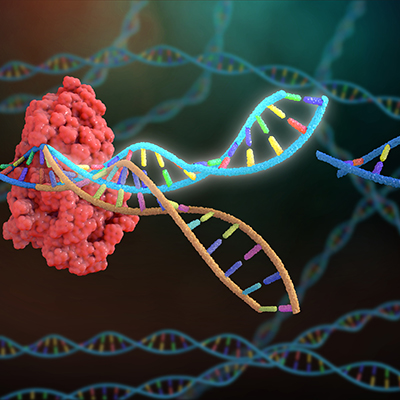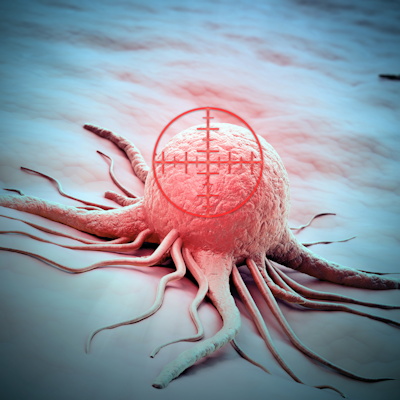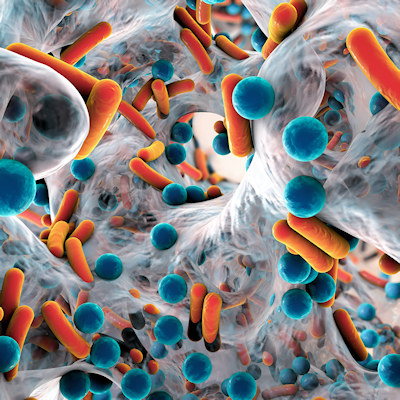 Study of woman who cannot feel pain finds molecular explanation for phenomenon
Study of woman who cannot feel pain finds molecular explanation for phenomenon
Researchers have uncovered the biological effects of a mutation that causes its carrier to live virtually pain-free, heal more rapidly, and experience reduced anxiety and fear. Read More
 Modified anti-nausea drug enters cells, treats pain
Modified anti-nausea drug enters cells, treats pain
Altering the chemical properties of the anti-nausea drug netupitant enables it to enter interior cell compartments and provide long-lasting pain relief, according to research published Monday in the Proceedings of the National Academy of Sciences (PNAS). Read More
 A new look at an old antibiotic for drug resistant bacteria
A new look at an old antibiotic for drug resistant bacteria
Researchers are taking a new look at an 80-year-old antibiotic. The in vitro and in vivo studies, published Tuesday in the journal PLOS Biology, may offer a new tool in the fight against difficult-to-treat and potentially lethal multidrug-resistant bacterial infections. Read More
 Boundless Bio closes $100 million Series C financing to advance precision oncology therapies
Boundless Bio closes $100 million Series C financing to advance precision oncology therapies
Next-generation precision oncology company Boundless Bio on Tuesday announced the closing of its $100 million Series C financing, which will be used to advance the clinical development of its BBI-355 extrachromosomal DNA-directed oncology therapy. Read More
 Modified bacterial peptide shows early promise against drug-resistant pathogens
Modified bacterial peptide shows early promise against drug-resistant pathogens
Work to improve the potency and reduce the toxicity of an antimicrobial peptide has yielded a molecule that inhibited multidrug-resistant bacteria (MDR) in early-stage tests. Read More
 Dualyx raises 40 million euros in Series A financing to advance autoimmune therapies
Dualyx raises 40 million euros in Series A financing to advance autoimmune therapies
Biotech firm Dualyx announced on Monday that it has raised 40 million euros (approximately $44 million) through a Series A financing round. Read More
 FDA approves first drug to treat agitation associated with dementia due to Alzheimer’s
FDA approves first drug to treat agitation associated with dementia due to Alzheimer’s
The U.S. Food and Drug Administration (FDA) on Thursday announced the supplemental approval of Rexulti (brexpiprazole) oral tablets for the treatment of agitation associated with dementia due to Alzheimer’s disease. Read More
 Alzheimer’s drug could prevent damage to the brain
Alzheimer’s drug could prevent damage to the brain
Researchers showed that tiny aggregates of amyloid beta protein, a naturally occurring substance associated with Alzheimer’s disease progression, can float freely through brain tissue fluid, reaching important brain regions and disrupting local neuron functioning. The research, published Wednesday in the journal Neuron, also indicated that a newly-approved Alzheimer’s disease treatment could neutralize these tiny aggregates, also known as protofibrils or oligomers. Read More
 Discovery of markers on long-lasting immune cells lights way to more durable vaccine responses
Discovery of markers on long-lasting immune cells lights way to more durable vaccine responses
Researchers have identified surface markers on cells that continue producing antibodies for a long time, pointing to a way to improve the duration of response to vaccines. Read More
 Medicinal cannabis in study relieves cancer pain, curbs opioid use
Medicinal cannabis in study relieves cancer pain, curbs opioid use
A multicenter registry study found that medicinal cannabis safely relieved cancer patients’ pain, while curbing the total number of medications and opioids they took. The research, published Tuesday in BMJ Supportive & Palliative Care, indicates that products with an equal balance of tetrahydrocannabinol (THC) and cannabidiol (CBD) seem to be particularly effective. Read More
Conferences
Science Briefs
Member Rewards
Earn points for contributing to market research. Redeem your points for merchandise, travel, or even to help your favorite charity.
Research Topics
Interact with an engaged, global community of your peers who come together to discuss their work and opportunities.
Connect
Tweets by @ScienceBoard






